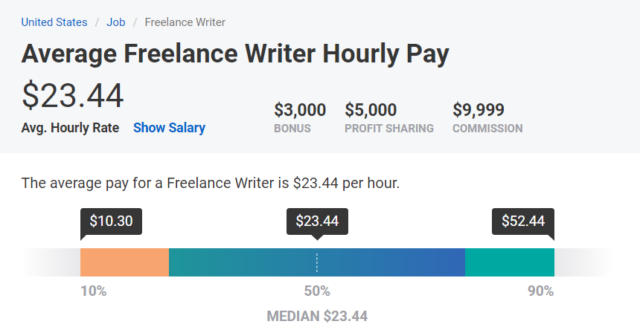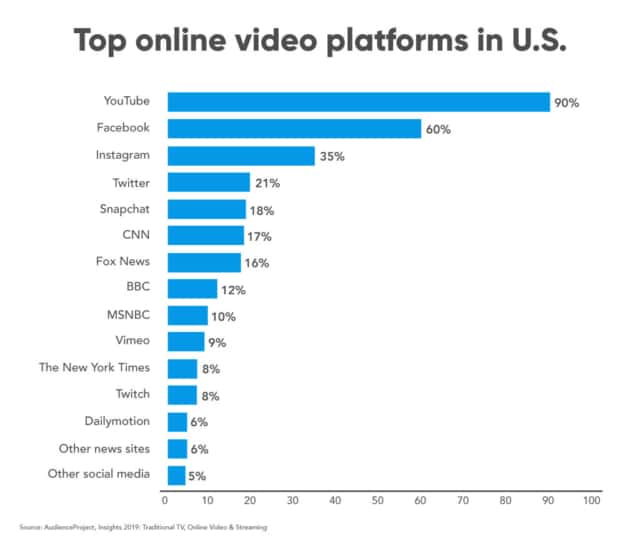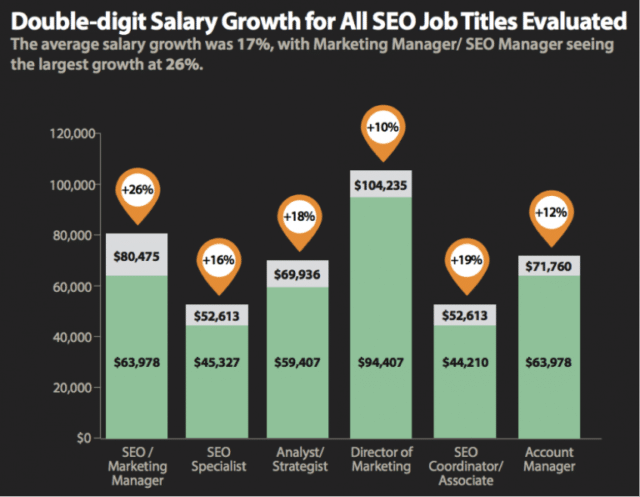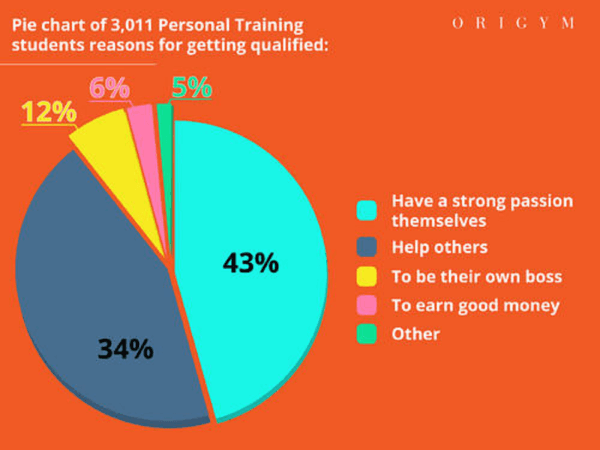As many of us have got a taste for the freedom that home working allows, and we face a cost-of-living crisis that will make UK workers tighten the purse strings, side-hustles and profitable passion projects have risen in popularity in recent months.
Whether you want to earn a few extra pennies in addition to your salary, or you have plans for a successful startup that becomes your sole income, building a fledgling business from the comfort of our own homes is something many are considering in a post-pandemic era.
What are the advantages of starting your business at home
Home working has opened new realms of opportunity for workers. Without the daily commute and the extra time and flexibility that allows, it’s easier to build up a new business from within your own four walls.
Here are some of the advantages of starting a new business from your home:
-
Keeping costs down
Depending on your business idea, for many online businesses, you should be able to get the wheels in motion from a home office, or simply a corner of your bedroom. That means your home will be a low-cost alternative to a traditional office workspace and you’ll save on the rental fees of letting an office space or workshop as you focus on getting things started.
-
Work-life balance
Not only will you save on travel costs and office rent, but you’ll also achieve better work-life harmony. The independence that comes with running your own business will allow you to spend time working on something that you truly love and care about as well as spending more time with family members and friends.
-
Autonomy and flexibility
Setting up your own venture from the comfort of your home gives you the ultimate freedom to manage your own success, your schedule, and your income. Being your own boss means you make the decisions on where and when you work best, who you work with, how fast your business grows, and how much time you allow for leisure and balance.
How to start a business at home: A step-by-step guide
1. Come up with your business idea
Number one on the list is to establish your business idea. While many businesses will evolve and diversify to offer different products or services, it’s best to keep plans small and simple at the beginning. It’s important to choose a business idea that fits your strengths. Maybe you want to use your current skills in your job role to go freelance, perhaps you’ve always dreamed of starting your own venture selling baked goods, perhaps you have a talent for knitting and want to set up an Etsy shop or online store, whatever it is, make sure it fits with your talents and your passions.
2. Decide what you’re going to sell
Remember, businesses aren’t always centred around a tangible product. You might want to sell felt hats, reflexology massage therapies, or, quite simply, you could sell your expertise and your time, depending on your business idea. We’re talking about product vs service businesses. Whatever the ‘product’, make sure it’s something people will pay money for, and ideally, do some research to identify a niche or an audience that would be willing to part with their hard-earned money for that product.
3. Write a business plan
Once you’ve settled on your best home business idea, building a business plan is crucial if you want your business to be viable and have longevity. Inevitably, your venture will evolve naturally as it grows, so you’ll need to update your business plan regularly, but it’s crucial to have a benchmark plan when you’re just starting out, if for no other reason than to keep you focused.
For many, new business ventures require investors. That will mean you’ll need to lay out your plans in black and white, and provide reliable statistics, competitor research, market research, audience profiles, planned milestones and viable evidence that your business has scope for significant growth.
- Decide on your business’s legal structure
There are a number of ways we refer to those who work for themselves. You might be planning to become a business of one as a freelancer, a gig worker, a side hustler, a one-man consulting business or you might choose to be an entrepreneur or business owner. Either way, you’ll need to set your business up in one of two ways:
1. As a sole trader
Sole traders can run their business as an individual, meaning you’ll be considered self-employed by HMRC. As a sole proprietor, you and your business are one and the same. This also means you can keep all of your business profits once you’ve paid your taxes.
2. As a limited company
If you want you and your company to be separate entities, even if it’s still a business of one, you can form a limited company by registering as such with HMRC. This will allow you to keep your business finances separate from your personal affairs.
Naturally, there are advantages and disadvantages to both options, so it’s worth taking a look at the differences between a sole trader structure and a limited company.
4. Set up a business bank account
If you have registered as a limited company, you’ll need to set up a bank account that is separate from your personal finances. If you’re registering as a sole trader, it can be tempting to just use your personal bank account, as you and your business are not separate entities. However, it’s good practice to keep your business money and your personal bank account separate, otherwise things could get a little complicated further down the line. Having your business finances separate from your personal affairs means you’ll be able to get better clarity over your cash flow, profits after tax, and general financial health.
5. Determine if your business idea works well from home
Ask yourself whether your business idea will work well from home. Some businesses simply aren’t suited to be based from home. If you want to run a dog boarding centre but live in an apartment without a backyard, you might want to consider a dog walking business instead.
6. Look into insurance
Whether you’re setting up as a one-man-band or freelance consultant, or you’re launching your own new venture with a small team, you will need to research the types of insurance you might need. For example, if you’re a freelancer, you may need to look into professional indemnity insurance, whereas if you’re setting up a startup with a large outlay on expensive equipment, you’ll want to safeguard all of your new kit. Make sure you shop around for the right insurance to cover you and the unique needs of your business.
7. Set up a home office
If you know you’ll be working from home, it’s a good idea to get yourself set up with a home office. Whether you have a spare room, a quiet corner of your living room, or even a closet (you may need to get creative with space economy!) it’s important to make your home office feel like somewhere you want to be, with room enough for a comfortable workstation.
In addition to the physical space, you’ll need to consider the strength of your broadband and whether it will be sufficient for business use. Remember, home broadband networks could fall short if you need fast upload and download speeds, or if you anticipate having regular video calls. Check out RingCentral’s guidance on preparing your home office network.
8. Work with an accountant
Unless you know what you’re doing, or you can dedicate the time to learn, taxes can be a bit of a minefield when you first set up your new company or your business of one. That’s why many seek the help of an accountant. Unless you know your stuff about the UK tax system, it’s worth working with a book keeping software such as Xero, Quickbooks, Sage or FreeAgent, as well as hiring yourself an accountant. It’s best to look out for an accountant with the right qualifications, namely, a fully qualified Chartered Accountant so that you can rest in the knowledge that your tax affairs are all above board.
9. Check on any legal requirements
When you first start up your company, the number one legal requirement is to register the business with HMRC. Whether you’re a one-man-band or a startup, that one is non-negotiable. It’s also worth getting your business insured, to make sure you’re protected when and if things go awry.
If you’re hoping to hire people in the future, you’ll need to make sure you know the legalities and do some research on employment law and make sure you can comply. You’ll also need to familiarise yourself with any other licensing requirements, permits or professional accreditations you might need to adhere to, depending on the discipline.
Media and marketing
1. Blogging
If you’re passionate about something and good with words, then blogging could be your big break! You can either set up your own website from scratch or use a website builder to get the hard work done for you – the key is to figure out your niche.
It’s unlikely you’ll become an overnight success with blogging, but if you implement the right tools and search engine optimisation (SEO) tactics, you could start making a profitable income. Some of the most profitable bloggers in the industry make up to $50k a year – a neat number for doing something you love!
2. Freelance writer

Whether you do it part-time or full-time, being a freelance writer provides you with the luxury of flexible work arrangements. You can either work with a recruitment agency to land gigs or scope them yourself on job sites like Upwork and Copify. It’s key you figure out who your niche is and whether you’ll be writing B2B marketing copy or content marketing copy. If you go the individual route, it’s key to build a brand around yourself and make your profile stand out against other copywriting freelancers. Building connections and a great portfolio is the cornerstone to any great writing career.
We’ve all seen the ‘struggling writer’ on TV who sits in a coffee shop all day, but don’t be fooled! Copy and content writing are always in high demand, and as you gather experience, you’ll start to build a trusted client base.
3. Podcasting
If you already own a business or blog, then creating a podcast is an easy way of getting more traction to your site. Though you can do podcasting as a standalone gig, you’ll be more profitable and successful if you gear it up with something you already do. If your voice is already out there, then podcasting can really give you an edge over competitors in your niche.
4. Social media influencer
If you already have a large following across your social media channels, then it’s time to start making the most of it! Instagram and TikTok are two of the most popular platforms for up-and-coming influencers; people who promote products or a brand on their social media.
Influencers often make the most money through affiliate marketing so try connecting with brands that fit your niche well and collaborate with them.
5. YouTuber

YouTube is a great business opportunity to get into the right niche and have a knack for creating relevant and interesting content. Once you start racking up subscribers, you’ll be able to monetise your audience and make spare cash off ads and any affiliate marketing you do on your channel.
6. Photographer
Whether you do it as part of a content marketing gig or set up your own business, being a photographer is an easy way of making money and exploring your creative side. Start by creating a website, building up your portfolio and constructing a steady client base to showcase your services.
7. Digital marketing manager
If you’ve got an excellent knowledge of SEO, advertising, and B2B/B2C, then a career in digital marketing is right up your alley! You can either freelance your services to companies and recruitment agencies or set up your own business where you work for yourself.
8. Ghostwriter
Handy if you’d like to make extra cash in your spare time, ghostwriting is a good avenue to go down if you’re skilled at editing, writing, and grammar. You’ll also need to understand your clients’ vision and make it a reality on paper, so start by building your portfolio and gaining a few references.
9. Resume writer

Another easy writing route to take is that resume writers can earn up to £85 per customer if they have enough experience and reputable references.
10. Freelance PPC consultant
Similar to an SEO expert, freelance PPC consultants will have a knack for marketing and optimising ads for PPC campaigns. If you already have a background in advertising, it will be easier to break into this role, but there are many online courses available to ramp up your knowledge.
11. Publish an eBook
Writing a book is no longer reserved for the literary greats – anyone with a passion for writing can now create their own novels with the rise of the Ebook. It’s never been easier to get your name out there, and it’s something that you can do in your favourite coffee shop or from your home! When getting your book out in the public eye, you can either hire marketers to do the hard work for you, or you can use Amazon’s advertising services for a set price.
12. Transcription services
If you’re a fast reader and adept at proofing, then offering transcription services is an easy way to make extra income. You can freelance your work out to clients and work on various projects, including transcribing podcasts and radio interviews.
13. Proofreader
A fairly easy market to break into, proofreaders are needed to make sure the copy is written concisely and free of any grammatical errors or misspellings. If you’re always pointing out your friend’s grammar mistakes, then becoming a proofreader could be a good fit.
14. Bid writer
Bid writers are in higher demand than ever before, and more and more companies are keen to take on freelancers rather than hire permanent employees. You’ll need to be experienced in PQQs and tenders, but if you need to brush up on your skills, you can always take online courses.
B2B services and agencies
15. B2B agency/startup

If you have an entrepreneurial spirit and great business ideas, running a start-up or B2B agency could be in your future. This route takes a lot more patience and time than others, but if you have a solid business plan and can cover your start-up costs, then it can become a reality.
Whether you work as part of a team of small business owners or go solo, try to figure out your niche and specialise – the market is saturated with the big fish of the agency world, so specialising cuts out some of the competition.
16. Virtual call centre agent
If you’d like to work remotely, then the role of a virtual call centre agent could be your next side of the business. Perfect for students or those looking to juggle work with other commitments, call centre agents are always in high demand and can easily find work with recruitment agencies.
17. SEO expert

SEO is hot in the world of marketing and business, so if you have experience, then make the most out of it! You can start by freelancing your services or creating your own business – seasoned professionals can make up to $81,000 a year!
18. Online bookkeeping
If you have a knack for numbers and accountancy, then a career as a bookkeeper could be just for you. You’ll need to be experienced in finances since you’ll be dealing with a company’s ledgers and transactions, but online courses are available for those wanting to learn more.
19. Virtual assistant
Generally self-employed, virtual assistants help with the needs of small business owners or clients from home. You’ll usually be paid on an hourly basis but have the luxury of working remotely and juggling other commitments too.
20. Motivational speaker
If you’ve been through a life-changing experience or have interesting stories to tell, motivational speaking could be your next gig. Try to build a brand around yourself and market why you’re beneficial to potential clients; what does your speaking bring, and how could others grow and learn from it?
Personal business and services
21. Dropshipping

A good business for making passive income, drop shipping involves buying products from a vendor and selling them on different online platforms (without ever handling them). Some of the most popular sites for dropshipping include Amazon, eBay, Etsy, and Shopify.
The good news is that this type of selling requires less capital and is easier to scale. You’ll need to have a solid business model in place if you want to be successful, but it’s worth it – top eCommerce sellers can make up to £100k a year.
22. Online craft seller
If your skillset is geared towards crafting homemade goods, you should consider selling your wares to make extra money. So long as you have a product marketing strategy in place and know what type of business you’re running, being an online craft seller can be extremely rewarding.
Perhaps you want to sell a customised t-shirt range or Christmas decorations online – the choice is yours!
23. Mobile hair and beauty
Got an affinity with hair and makeup? If so, offering your services to the public could be a simple way of making money while doing something you love! Whether you’re skilled in nails or hairdressing, you can either offer mobile services or work towards running your own salon from home.
24. Online bakery

Online food delivery has skyrocketed during the pandemic, and it’s a trend that looks set to stay. So, if you have a passion for baking, then it’s time to open your own store! You can market your products on social media and even progress to holding a place on Deliveroo or Uber Eats.
The best small business always stays on top of its competition, so scope out your market and see if there’s anything different you could bring to foodies in your area.
25. Uber driver
If you’re looking for part-time work, then becoming an Uber driver is a great way of making easy money while handling your own hours. Whether you decide to work on behalf of a food delivery service such as Deliveroo or Uber Eats or operate as a taxi, this job offers a level of flexibility not easily found.
26. Personal trainer

Do you consider yourself a budding fitness fanatic? If so, becoming a personal trainer could enable you to work in an industry that’s popular and ever-evolving. You’ll need to gain a personal training licence, but once you’ve got that in hand, there are some options available to you. You can either set up your own fitness channel on YouTube or offer your services to clients online – the choice is yours!
27. Personal shopper
If you have excellent communication skills and an eye for detail, personal shopping might be a good fit for you. Your work will revolve around advising clients on what items are the best to buy, so staying on top of the latest trends is necessary.
28. Event planner
An event planner position is ideal for anyone who loves organising parties and get-togethers. If you’ve got an eye for design and an ability to turn your client’s vision into a reality, event planning can be advantageous.
29. Remote real estate agent
The rise of the remote real estate agent is gaining traction. If you have excellent communication and negotiation skills, then this career path could be ideal. You’re more likely to be accepted to a branch if you’re degree qualified, but training is still available for those looking to build experience.
Neighbourhood services
The following services can all be promoted on social media channels, but one of the most popular ways to advertise yourself is within your local community:
30. Dog walker

Ideal for animal lovers and students, dog walkers, have the luxury of earning money for doing something fun! Once you become well known in your area, more and more people will start to trust you looking after their dogs, so be sure to build up a good reputation.
31. Pet sitting
Like a dog walking, pet sitting is ideal for those who love animals and is especially good for teenagers or children looking for extra pocket money.
32. House sitting
A straightforward job, house sitting pays you for simply watching over a house and making sure everything’s in order!
33. Laundry services
Ever had to visit the launderette? Sometimes the prices can be ridiculously high, so offering discounted laundry services to those in your neighbourhood is likely to gain some traction.
34. Cleaning services
If you’re an ace at cleaning, then why not offer your services to those in your neighbourhood? Just make sure you vet people you’re offering services to, ensuring your safety and wellbeing before stepping into their homes.
35. Daycare
If you’re experienced in childcare, then opening up your own daycare from home is a great way of making money. You’ll need to have a natural connection with children and patience, but it could turn into a fully-fledged business with enough time!
36. Babysitting
Perfect for college students or those looking to make extra cash, babysitting gives you flexibility and control over your hours. Word of mouth is significant here, so make sure you’re committed and do as the parents say – this way, you’ll gain even more clients!
37. Landscaping
If you have a natural flair for gardening, landscaping might be a great way of making extra money!
38. Handyman
Have a knack for fixing up old gadgets, cars, and more? If so, you should think about offering your services as a handyman to your neighbourhood.
39. Food truck
If you’re talented at cooking, then consider opening up your own food truck. Make sure you scope out your area first to see the latest food trends and anything new you can bring.
40. Catering services

Like opening a food truck, catering services require a little more of a business plan, and you’ll need a team on hand to make it a reality. If you have the resources and caterers available, this could be an extremely profitable business to embark on.
41. Man with a van (Delivery Service)
If you’ve got a van you don’t use often, then make the most out of it – advertise delivery and removal services in your local area so you can start earning some extra cash.
42. Tour guide
Ideal if you’re located in a popular tourist destination, being a tour guide gives you the flexibility to choose your own hours and wax lyrical about your local area’s hotspots and history.
43. Spare room rental
An easy way to make passive income is to consider putting it on the market to rent if you’ve a spare room.
44. Airbnb
If you’re homeowners of two or more properties, putting a property on Airbnb for tourists or travellers is a simple way of earning a passive income. You’ll need to keep on top of your Airbnb profile to become popular, though. Superhosts have higher earning potential than regular advertisers. Increase profit potential by having listed properties squeaky clean and always try to go the extra mile for your guests.
Educational services and online learning
45. Online tutor
Whether you’re a college student or educated to a degree level, make the most out of your knowledge and become an online tutor! Use your subject know-how to provide distance learning to clients, building up referrals as you go along to increase your popularity.
46. Educational course creator
The popularity of online courses has boomed during the pandemic, and it looks set to stay. If you’re skilled in a certain subject or area, offer your expertise through paid courses online. With enough experience and popular ratings, you could see your course creation become a full-time, successful business!
47. Language and translation services

If you possess the gift of being bilingual, then offering language and translation services online is a simple way to make money.
Technology
48. App developer
If you’re a whizz at computers and gadgets, then becoming an app developer could be a rewarding and exciting job opportunity. You’ll need to have some tech know-how, but watching your code turn into a fully-fledged app will inspire you and could lead to a handsome income.
49. Freelance graphic designers
Combine your love of tech with a passion for design, and you could soon become a freelance graphic designer. Your daily tasks will revolve around designing the layout and concept of magazines and advertisements, so creativity and an eye for detail are essential.
50. Web developer
If you happen to have a talent for coding and programming languages, then a web developer role could be a rewarding career – senior developers can earn around $107k a year!
Next steps: Start a business checklist
Whether you work by yourself or dream of partnering up, it’s key you begin your venture with a business checklist. Similar to a business plan, a checklist will set out the roadmap for your online business ideas, taking into account:
- Resources needed
- Financial costs
- Time
- Business structure
- Strengths and weaknesses
- USPs
- Best business ideas
Frequently Asked Questions on Small Business Start-Ups
-
What are the top easiest businesses to start?
If you’re looking for something easy- don’t start your own business. Building a business is hard, and it isn’t something to be taken lightly. It takes time, diligent planning, and often long hours and dedication. However, there are some businesses that require less of an outlay financially. Essentially though, the easiest business for you to start will be the thing you love doing most, the thing that doesn’t feel like a chore and that works best around your lifestyle.
-
What are the most successful small business ideas?
There’s a big difference between the most successful small businesses and the most popular. Success comes from hard work, and good planning, so any small business can be successful if you have the passion, and you can dedicate the time.
-
Do I have the acumen to operate a business?
Only you can answer this one. Establishing a great business idea, and operating your own business does require niche skills, and a certain level of entrepreneurship and business knowledge, depending on the nature of your venture. But don’t forget, if you lack skills in certain areas, you can hire, outsource, or call in favours from friends to help you to fill those gaps along the way.
-
What business should I start?
Start something that makes you excited. Ultimately, if your business is a success, you’ll be doing this day-in, day-out, so you need to have the passion to drive the project forward. Hopefully, the list above should give some food for thought to get you started.
-
What do I do first?
Depending on the initial outlay of your business idea, it’s a good idea to get your finances in order, before putting together a business plan. Make sure you have a bit of a buffer in terms of your budget because unexpected costs and necessary investments will inevitably crop up.
-
How should I organise my business?
That is entirely up to you and your values. Some small business teams have a very hierarchical culture, with every member of the team knowing their part in the organisation, whereas others might choose a more egalitarian, open culture where every employee has a platform to voice their ideas and opinions. Do some research around the different business structures and cultures to make sure you know your stuff as your business grows.
-
What permits or licenses do I need?
This will depend on your business. It’s important to research whether you might need specific accreditations, licenses or permits so that you don’t risk any nasty surprises when your business is in its fledgeling state.
-
How do I market my product/service?
Your marketing will depend on the product or service and the respective target audiences. It’s important to know the right channels for best marketing your product. For example, if your audience is an older ‘grey pound’ demographic, you might want to stick with traditional marketing channels such as email marketing, or telemarketing, rather than social platforms like TikTok, whose users are mostly Gen Z or millennials.
-
Why do I need a business plan?
The two key reasons you might need a business plan are as follows: you’ll need something to keep you on the right track as you grow, and if you’re looking for investors in the future, you’ll definitely need one.
-
How do I finance my business?
There are a number of ways in which you could fund your new business venture. Depending on how much you need to get the wheels in motion, and the nature of your new business you could fund the project yourself, or you could opt for one of the following routes:
- Investors
- Business loans
- Financial support from family and friends
- Startup loans
- Business grants
How RingCentral could help your business
As a trusted communications platform, RingCentral could help you in your new business venture.
If you’re looking for ways to collaborate with team members or interact with clients, our cloud-based communications software offers a seamless solution for hybrid work and remote operations. Take your business venture a step further, and invest in our platform to connect seamlessly with clients and customers.
Originally published Nov 29, 2022, updated Dec 14, 2023
Discover RingCentral Contact Centre
Build lasting and meaningful relationships with customers with an omnichannel cloud contact centre.

